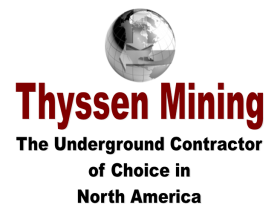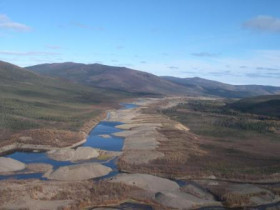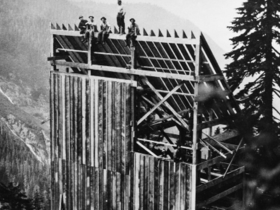Global Atomic (TSX: GLO; US-OTC: GLATF) shares gained 10.5% Friday after the company said 10,000 tonnes of development ore has been brought to the surface at its Dasa mine in west-central Niger.
With more than 1,200 metres of mine development finished at Dasa, the mineralized ore is being segregated into different grades ahead of commissioning at the end of 2025, Global Atomic said in a progress update on Thursday. The company has paved a ramp into the proposed $425 million capex underground mine now developed to 1,200 metres deep.
“We continue to make excellent progress at the Dasa project site as we complete site preparation for civil works to begin and installation of the acid plant as the first major component of the Dasa processing plant,” Stephen Roman, Global Atomic president and CEO, said in a release. “A committee with representatives from several key government ministries is being formed to expedite the resolution of any outstanding issues that may arise relating to mining, finance, transportation and labour within Niger.”
Global Atomic shares traded at C$1.47 apiece on Friday morning in Toronto, valuing the company at C$333.7 million. Despite the stock uptick, its shares remain in a slump, having lost 53% of their value almost six months after Niger military government ordered United States troops to leave the Sahel nation. The stock traded between C$1.13 and C$3.91 this year.
Progress at Dasa comes as the spot price for uranium oxide rose to $82 per lb. this week from $78.50 per lb. at the end of August. A deal last month between Microsoft and Constellation on a 20-year power purchase from the restarted Three Mile Island plant in Pennsylvania, is just one example of how a resurgent nuclear industry is buoying the uranium market.
Processing plant progress
Earthworks for the acid plant at Dasa are finishing up, with the contractor next preparing the site for the crusher, and the SAG mill location to follow.
Equipment for the plant is arriving at the site, as well as components for the acid plant, shipped through Nigeria to the south.
The camp is expanding in phases to support the roughly 450 employees and contractors now at Dasa, and the workforce expansion to 900 during the peak of construction next year.
The mine plan, announced in March, put output at 68.1 million lb. of yellowcake over a 23-year period starting in 2026, based on a throughput of 1,000 tonnes per day. The company expects the plant to produce up to 1,200 tonnes per day. It plans to update the flow chart this quarter.
Financing
An unnamed US development bank is pledging to approve a $295 million loan covering 60% of Dasa’s costs, Global Atomic said. For the remaining 40% of the funding, the company has already invested about $120 million. Global Atomic expects confirmation of the approval schedule with the bank is this month.
It’s also seeking possible joint ventures in talks with other groups it declined to name.
The military coup in July last year led the US to suspend government funding for Dasa, but the company managed to raise C$15 million in January and C$20 million in July by selling stock.
American troops had been in Niger to fight regional Islamic insurgents since a 2012 agreement. The West African country supplies about 5% of global uranium demand making it the seventh-largest producer, including about 20% of the European Union’s needs. Numerous junior and large companies are exploring in Niger. French-state owned Orano said in February it was restarting production that was suspended after the coup.
Dasa hosts 73 million lb. in probable reserves of uranium oxide in 8 million tonnes grading 4,113 parts per million uranium oxide, according to the feasibility study. Global Atomic has signed offtake agreements for 1.3 million lb. of uranium a year.
Source: MINING.COM – Read More










